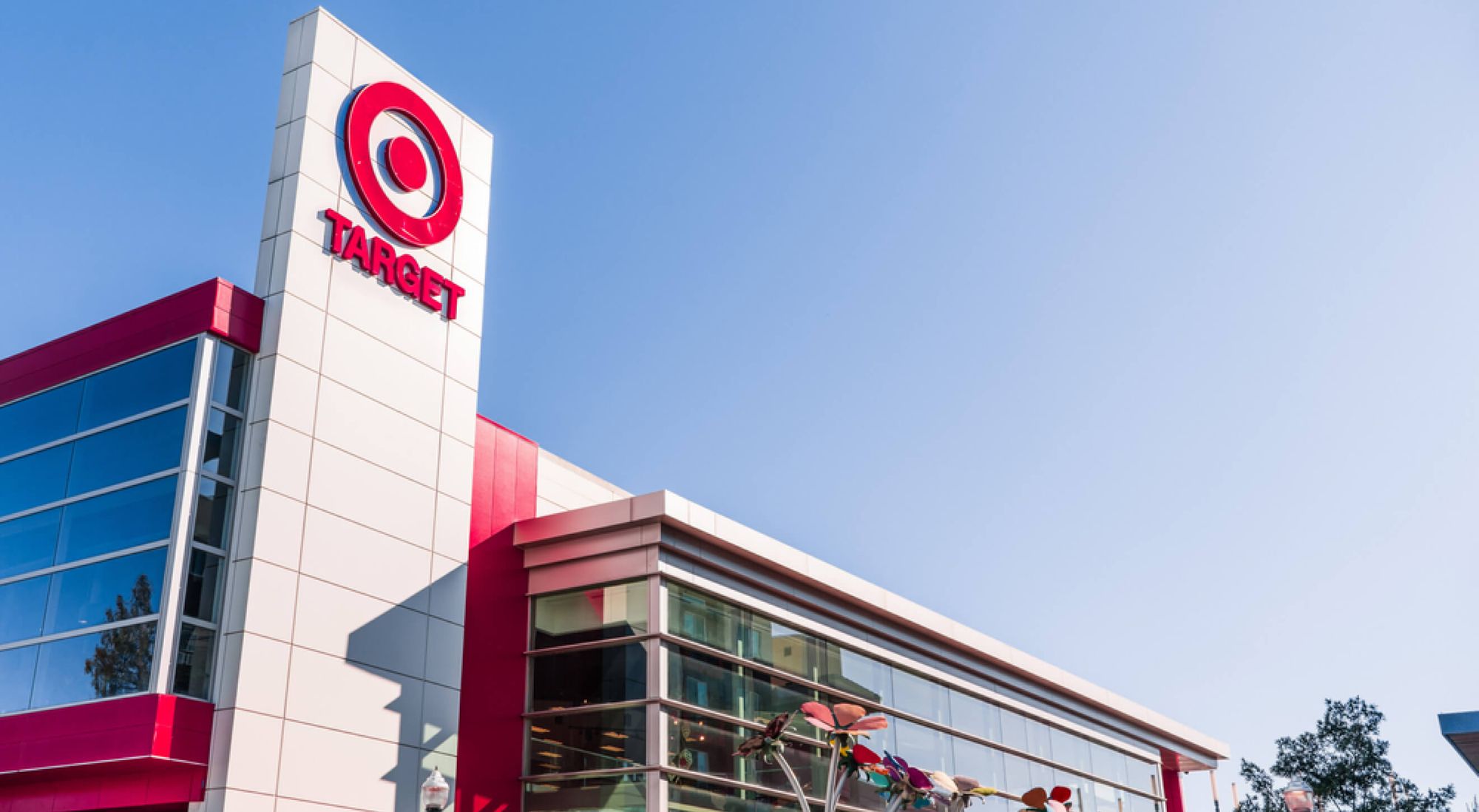Inside Target company culture: A model for building people-first workplaces

When you think about successful companies, what’s the first thing that comes to mind? If you said "culture," you’re on the right track. Picture a retail giant like Target, consistently in the top rankings for employee satisfaction and customer experience, recognized as one of the world's best, making it a preferred shopping destination. But how does it maintain that magic? The answer lies in Target’s company culture.
It’s not just about the slogan or the paycheck; it’s about creating an environment where people feel valued, included, and motivated to bring their best selves to work in their jobs. Whether it’s their commitment to diversity and inclusion, the approach to frontline support, or their creative engagement strategies, Target gets it right. They understand that the best way to achieve business goals is to empower their people first.
In this blog, we’ll take a deep dive into what defines culture at Target, how its core values shape the workplace, and why it works. If you’re looking to replicate some of Target’s culture in your own organization, stay tuned! You might be surprised by the secrets to their success that can be applied to any company.
What defines Target corporation company culture?
Target’s company culture is built on a foundation of inclusivity, innovation, and connection. At its core, the culture is centered around putting people first, both employees and customers. Target creates an environment where individuals are encouraged to thrive and contribute, whether they’re in a corporate office or on the retail floor. This culture prioritizes collaboration and open communication, fostering a sense of belonging for everyone who walks through the doors.
One of the defining features of Target’s culture is its commitment to diversity, equity, and inclusion (DEI). The company makes intentional efforts to ensure that all employees, including women, feel seen, heard, and valued. By promoting DEI at all levels, Target has created a workplace where employees can bring their authentic selves to work, knowing that their contributions are respected.
The company also emphasizes a growth mindset, constantly seeking opportunities for innovation and improvement. This mindset fuels not only the company’s business strategies, including engineering, but also its employee development programs. Target supports career advancement through training, mentorship, and continuous learning opportunities.
Target’s core values: Inclusivity, connection, and innovation

America's leading retailer, Target, has core values of inclusivity, connection, and innovation that shape everything from its business strategy to its workplace culture.
These values aren’t just buzzwords; they are embedded in how the company Target operates daily. Let’s explore how each one influences Target’s success.
1. Inclusivity
Target’s commitment to inclusivity is foundational to its culture and operations. The company strives to ensure that everyone, regardless of background, feels welcomed and valued, making Target a great place to work. This approach is reflected in their diverse workforce, product offerings, and community outreach. By fostering an inclusive environment, Target attracts a wide range of talent and customers who feel seen and heard.
2. Connection
At Target, connection goes beyond just customer service; it extends to their employees and the communities they serve, including their guests. Employees are encouraged to build relationships, whether with coworkers, customers, or local organizations. This sense of community creates a supportive, collaborative atmosphere where employees can thrive. It also allows Target to remain deeply rooted in the values of the neighborhoods it serves.
3. Innovation
Innovation at Target isn’t just about technology—it’s about evolving the shopping experience and staying ahead of the curve. The company is known for its ability to adapt quickly to changes in consumer behavior, especially with digital transformation in engineering. By prioritizing innovation, Target continues to offer cutting-edge products and services, ensuring it remains competitive in the retail industry.
Brief history of Target’s workplace philosophy

Target, the preferred shopping destination, has a workplace philosophy that has evolved significantly since its inception in 1902, but its commitment to people-first values has remained constant, especially for those who are joining Target. In the early years, the company was focused on offering affordable goods in an innovative and efficient manner, but its workforce philosophy didn’t develop until much later.
In the 1960s, under the leadership of George Dayton, Target began to establish itself as a company that cared for its employees, offering better wages and benefits than many of its competitors. As the company grew, it became clear that fostering a positive work culture would be a key to its long-term success.
In the 1990s, with the rise of corporate social responsibility, Target started focusing on diversity, inclusion, and community involvement, recognizing that its people—both employees and customers—were the heart of the brand, reflecting the values of Target Corporation.
Target continued to refine its workplace philosophy in the 2000s with a focus on inclusivity, collaboration, and innovation. The company embraced flexible work arrangements and employee recognition programs to ensure a supportive environment.
By the 2010s, Target was recognized as one of the best places to work, with a clear emphasis on employee well-being, career development, and community engagement. Today, Target’s workplace philosophy is built on the pillars of inclusivity, connection, and innovation, reinforcing its commitment to its people and the greater society.
Leadership style and culture at Target
Target’s leadership style and cultural tone are fundamental to the company’s success. They foster a culture of collaboration, inclusion, and empowerment, creating an environment where leaders are approachable and employees feel valued.
Collaborative leadership
Target’s leadership encourages teamwork and collaboration at all levels. Leaders at Target work closely with their teams, ensuring open lines of communication and a shared sense of purpose. This collaborative style empowers employees to contribute ideas and feel invested in the company’s mission, creating a positive work environment where all voices are heard.
Empathy and approachability
At Target, leaders are not just authority figures—they are approachable mentors. The company’s culture emphasizes empathy, with leaders showing genuine concern for each person and their employees’ well-being. This approach helps build trust and loyalty, ensuring that employees feel comfortable bringing forward challenges, feedback, or ideas.
Focus on employee development
Target leaders prioritize employee growth and professional development. The company invests in its leaders’ ability to mentor and guide their teams, offering training programs and career advancement opportunities related to each job title. This development-focused approach not only boosts employee morale but also encourages retention by providing clear career paths within the organization.
Empowerment and accountability
Leadership at Target empowers employees by providing them with autonomy and ownership over their roles, contributing to responsible corporate citizenship. This empowerment is balanced by a strong sense of accountability, with leaders ensuring their teams have the resources and support needed to meet goals. This balance fosters an environment of trust, where employees feel confident and accountable for their contributions.
Diversity and inclusion at the forefront
Target’s leadership is committed to diversity and inclusion, ensuring that these values are integrated into all aspects of its culture. Leaders actively champion diversity, equity, and inclusion (DEI) initiatives, and their commitment to creating an inclusive workplace sets the tone for the entire organization. This leadership approach makes Target a leader in both business and social responsibility.
Target’s approach to diversity, equity, and inclusion (DEI)
Target's approach to diversity, equity, and inclusion (DEI) has been a cornerstone of its corporate identity, reflecting its commitment to fostering a workplace where all individuals feel valued and empowered. However, recent shifts in the political and regulatory landscape have prompted the company to reassess and modify its DEI initiatives.
This evolution underscores the dynamic nature of corporate responsibility and the challenges organizations face in balancing internal values with external pressures.
1. Commitment to inclusivity
Historically, Target has emphasized creating a sense of belonging for its team members, guests, and communities. The company aimed to build a team that reflects the diversity of its customer base and to foster meaningful relationships within the neighborhoods it serves. This approach was integral to Target's business strategy, aligning with its values of inclusivity and community engagement.
2. Racial equity initiatives
In response to societal calls for justice and equality, Target launched the Racial Equity Action and Change (REACH) initiative. This program focused on increasing the representation of diverse team members, promoting equitable hiring practices, and investing in Black-owned businesses. The initiative was part of Target's broader effort to address systemic racism and promote diversity within its operations.
3. Supplier diversity
Target is committed to sourcing products from diverse suppliers, including those owned by people of color, women, LGBTQ+ individuals, veterans, and people with disabilities. This strategy aimed to create a more inclusive supply chain and support economic opportunities for underrepresented groups.
4. Employee resource groups
The company supported various employee resource groups (ERGs) to provide platforms for team members to connect, share experiences, and advocate for inclusivity within the workplace. These ERGs played a crucial role in fostering a supportive environment and driving internal cultural change.
5. Scaling back DEI efforts
In early 2025, Target announced the conclusion of its three-year DEI goals and the end of the REACH initiative. The company cited an evolving external landscape, including political and legal challenges, as factors influencing this decision. This move reflected a broader trend among corporations reassessing their DEI strategies in response to changing societal dynamics.
6. Impact on community relationships
The rollback of DEI initiatives has led to mixed reactions from communities and stakeholders. While some support the company's decision, others express concern that it signals a retreat from commitments to diversity and inclusion. This situation highlights the complexities companies face in maintaining community trust and engagement amid shifting policies.
7. Future outlook
As Target navigates the evolving landscape of DEI, the company faces the challenge of balancing its commitment to diversity with external pressures. The future of Target's DEI efforts will likely depend on how it adapts to legal, political, and societal changes while striving to maintain an inclusive and equitable environment for its team members and customers.
How does Target support its frontline retail teams?

Target places a strong emphasis on supporting its frontline retail teams, understanding their pivotal role in the company’s success. With several initiatives aimed at improving their experience, Target ensures employees feel valued, empowered, and equipped to succeed.
- Competitive wages and benefits: Target offers competitive pay and a robust benefits package for its frontline employees. Health insurance, paid time off, and retirement savings plans are part of the offering, ensuring workers are financially secure and have access to essential resources. This approach helps attract and retain talent across the retail workforce.
- Career growth and development opportunities: Target fosters career growth by providing training and development programs. Employees can take part in mentorship opportunities, learning new skills while advancing their careers within the company. This support creates long-term engagement and promotes internal career mobility.
- Flexibility and work-life balance: Target values work-life balance and offers flexible scheduling for its frontline teams. By accommodating personal schedules and providing flexibility, employees can balance work with family commitments. This creates a more satisfying work environment and helps reduce burnout.
- Employee recognition programs: Target's recognition programs, like "Team Member of the Month," help celebrate frontline workers. Regular acknowledgment of hard work boosts morale and motivates employees to continue contributing their best efforts. This focus on appreciation fosters a positive company culture.
- Mental health and wellness support: Target supports mental health through resources like counseling services and wellness programs. These initiatives ensure employees have the tools to manage stress and maintain their well-being. By prioritizing mental health, Target creates a supportive environment for its frontline teams.
Employee engagement and recognition practices at Target
Employee engagement and recognition are at the heart of Target’s strategy to create a positive and motivated workforce. The company has built a strong framework that emphasizes appreciation, involvement, and growth.
- Regular feedback and open communication: Target encourages open communication between management and employees through regular feedback sessions. This fosters an environment where workers feel heard and valued, contributing to a deeper sense of engagement. Continuous dialogue helps in addressing concerns and aligning goals.
- Team celebrations and recognition programs: Target has several recognition programs that celebrate individual and team achievements. From "Team Member of the Month" awards to celebrating work anniversaries, employees are recognized for their contributions, making them feel appreciated and motivated to excel.
- Empowering employees to share ideas: Target encourages employees at all levels to contribute ideas and participate in decision-making processes. This sense of involvement increases engagement, as employees feel their input can lead to positive changes. Such initiatives promote a culture of innovation and ownership.
- Development opportunities and career growth: Target invests in the development of its employees by offering various training and growth opportunities. Employees are encouraged to take on new responsibilities and advance within the company, enhancing engagement through career progression.
- Work-life balance initiatives: Target promotes work-life balance by providing flexible schedules and paid time off. These policies help employees manage personal commitments while staying engaged at work, contributing to a positive and sustainable work experience.
The importance of culture in Target’s success
Target’s company culture is a cornerstone of its success, influencing everything from employee satisfaction to customer experience. A positive, inclusive, and innovative environment has helped Target build its brand and maintain a competitive edge.
- Employee satisfaction and retention: A strong and supportive culture ensures employees feel valued, which drives job satisfaction and retention. Target's focus on creating an inclusive and welcoming environment helps retain top talent, reducing turnover rates and fostering long-term success.
- Strong customer service: When employees feel engaged and connected to the company’s culture, they are more motivated to provide exceptional customer service. This enhances the overall customer experience and drives loyalty, which is crucial for Target’s competitive advantage.
- Alignment with company values: Target’s culture is rooted in its core values of inclusivity, connection, and innovation. Employees who align with these values are more committed to achieving the company’s mission, driving a cohesive effort toward shared goals and success.
- Innovation and adaptability: A culture that promotes innovation allows Target to stay ahead in the retail market. Encouraging employees to think creatively helps the company adapt to market trends, improving business agility and positioning it as an industry leader.
- Brand reputation: Target’s positive workplace culture is reflected in its strong brand reputation. A happy, motivated workforce translates to an attractive employer brand, attracting quality candidates and strengthening customer loyalty. Culture is a key factor in maintaining this strong public image.
What target employees say: Reviews and Glassdoor highlights
Target employees often praise the company's positive work environment and supportive leadership. However, some concerns about compensation and career advancement opportunities persist. Overall, feedback indicates a generally favorable employee experience.
- Positive team culture: Employees frequently highlight the friendly and collaborative atmosphere at Target. Many reviews mention the supportive nature of coworkers and the sense of camaraderie within teams. This positive culture contributes to a pleasant work environment and enhances job satisfaction.
- Competitive pay and benefits: Target offers competitive wages and a comprehensive benefits package. Employees appreciate the company's commitment to providing fair compensation and valuable perks, such as health insurance and retirement plans. These offerings contribute to overall employee satisfaction.
- Opportunities for career growth: While some employees express a desire for clearer career advancement paths, others note that Target provides opportunities for growth within the company. Training programs and internal promotions are available, allowing employees to develop their skills and progress in their careers.
- Work-life balance: Many employees commend Target for promoting a healthy work-life balance. Flexible scheduling options and understanding management help employees manage their personal and professional responsibilities effectively. This balance contributes to overall job satisfaction.
- Areas for improvement: Some employees suggest that Target could enhance communication and feedback mechanisms. Addressing concerns related to management transparency and providing more frequent performance evaluations could further improve the employee experience. Constructive feedback indicates a willingness to collaborate for positive change.
Challenges Target faces in maintaining its company culture

Maintaining a strong company culture is an ongoing challenge, especially for large retailers like Target.
As the company expands and adapts to market shifts, preserving the values that define its culture becomes more complex. Let’s explore some key hurdles Target faces in keeping its culture intact while growing.
- Scaling culture across locations: With thousands of stores nationwide, ensuring that every location embodies Target’s culture can be difficult. Despite centralized values, the experience at each store can vary based on leadership, store size, and location. Ensuring consistent implementation of values across locations requires constant monitoring and adjustments.
- Integrating new hires into the culture: As Target continues to hire a diverse group of employees, ensuring new hires align with the company’s culture can be challenging. Balancing cultural fit with fresh perspectives is key to maintaining a healthy, dynamic work environment. New employees need adequate training to embrace Target’s values while adapting to their role.
- Maintaining inclusivity amidst growth: Target has made inclusivity a cornerstone of its culture, but as the company expands, it’s vital to maintain this commitment. Challenges may arise when addressing cultural diversity and ensuring that policies and initiatives are not diluted as the workforce grows.
- Addressing employee burnout: In fast-paced retail environments, burnout is a common challenge. Despite Target's focus on employee wellness, high turnover and physical demands can affect employee morale. Balancing efficiency with employee well-being is critical in preserving the company’s positive culture and avoiding burnout.
- Balancing corporate goals with employee needs: As a large corporation, Target faces the challenge of balancing business priorities with employees’ personal and professional needs. While maintaining profitability is key, staying true to the cultural elements that foster engagement and well-being is just as important.
- Ensuring alignment across departments: Within Target, different departments may have distinct needs, roles, and leadership styles. Aligning all these diverse areas with the same set of cultural values can be challenging. Ensuring that everyone, from corporate leaders to retail workers, is on the same page requires consistent communication.
- Overcoming resistance to change: Even within a progressive company like Target, some employees may resist change, especially when it comes to evolving the company culture. As Target continuously adapts to market demands and technological changes, certain cultural shifts may be met with reluctance.
How does Target maintain its culture across thousands of locations?
Maintaining a consistent culture across thousands of locations can be a daunting task for any large retailer. However, Target has found effective ways to ensure that its core values are upheld, no matter where its employees work. Here are five ways Target keeps its culture strong across its extensive network of stores.
- Consistent leadership training: Target invests heavily in leadership training to ensure that store managers and team leaders are aligned with the company’s culture. These leaders play a critical role in shaping the culture at each store by setting the tone and fostering an inclusive and collaborative environment. This training ensures consistency across locations.
- Clear communication channels: Target emphasizes clear communication between corporate and retail teams, ensuring that all employees are informed and engaged with the company’s values. Regular updates, town halls, and digital platforms help ensure that everyone is on the same page regarding goals, cultural expectations, and changes in company policies or practices.
- Employee engagement programs: Target uses employee engagement programs to keep staff connected to the company’s culture, regardless of location. These programs are designed to make employees feel valued, foster a sense of belonging, and encourage teamwork across stores. By implementing these initiatives, Target ensures employees feel like part of a larger, unified mission.
- Recognition of cultural ambassadors: To keep culture thriving at every level, Target designates certain employees as cultural ambassadors who model the company's values. These ambassadors help reinforce Target's cultural expectations by offering guidance and support to their peers. This initiative helps spread the cultural ethos throughout the entire organization.
- Regular feedback and pulse surveys: Target regularly conducts pulse surveys to gather employee feedback on the company’s culture and overall work environment. This feedback helps identify potential challenges and areas of improvement. By addressing these concerns promptly, Target maintains a strong culture that adapts to employees’ needs and keeps everyone aligned with the company’s values.
The role of technology and digital transformation in Target’s culture

Technology plays a key role in Target’s company culture, enabling innovation and improving employee engagement. By integrating digital transformation across its operations, Target ensures that its culture evolves alongside these advancements.
- Empowering employees through digital tools: Target utilizes digital tools, such as mobile apps and in-store technology, to streamline employee workflows. This efficiency boosts productivity while aligning with their cultural focus on innovation and helping employees work smarter.
- Enhancing communication across teams: Target leverages platforms like Slack and Microsoft Teams for seamless communication. This ensures that employees across thousands of locations remain connected, fostering transparency and collaboration to maintain a unified company culture.
- Facilitating personalized employee development: With digital training tools, Target offers employees access to personalized learning experiences. This allows employees to grow professionally while reinforcing Target’s commitment to inclusivity and supporting employee development.
- Driving customer-first culture with data insights: Target’s use of data analytics helps employees understand customer needs and preferences. By making data-driven decisions, employees are empowered to deliver an exceptional shopping experience, aligning with Target's customer-centric culture.
- Supporting remote and flexible work options: Digital transformation at Target enables flexible work arrangements for corporate employees. This adaptability promotes work-life balance and helps maintain a positive culture of inclusivity and employee satisfaction.
Target’s approach to recognizing and rewarding employees

Target places great emphasis on employee recognition as a core part of its company culture. By celebrating achievements and providing various forms of rewards, Target ensures its employees feel valued and appreciated.
- Recognition through public acknowledgment: Target regularly acknowledges employee accomplishments publicly, whether it’s through in-store shout-outs or company-wide emails. This public recognition boosts morale and encourages a sense of pride in the workplace.
- Incentive programs: Target offers various incentive programs, including performance-based bonuses. These programs motivate employees to perform at their best and demonstrate Target’s commitment to rewarding hard work and dedication.
- Employee recognition awards: Through a structured awards system, Target highlights exceptional employees with annual recognition events. These awards celebrate key achievements and foster a culture of excellence within the company.
- Personalized rewards: Target offers personalized rewards that match employees’ preferences, such as gift cards or extra paid time off. This thoughtful approach ensures that rewards feel meaningful and tailored to the individual.
- Career advancement opportunities: Employees who demonstrate exceptional performance are often given the opportunity to grow within the company. This approach not only rewards employees but also ensures they feel supported in their career journeys.
- Workplace wellness initiatives: Target also rewards employees by offering wellness programs, such as gym memberships or mental health resources. These initiatives help employees maintain a healthy work-life balance and improve overall job satisfaction.
- Team-based recognition: In addition to individual recognition, Target celebrates team achievements. By recognizing group successes, Target fosters a collaborative environment where everyone feels valued and part of a larger mission.
What makes Target’s culture different from other retail giants?

Target company culture stands out not because it’s flashy, but because it’s intentional. While many retail giants focus strictly on bottom-line results, Target has built its identity around people-first values, purpose-driven work, and inclusive environments, making its stores feel more like communities than just sales floors.
- Values-driven decision-making: Unlike retailers that operate solely on efficiency metrics, Target integrates its core values, like inclusivity and connection, into everyday decisions. This creates a workplace rooted in purpose, not just performance.
- Consistent cultural tone across locations: Target maintains cultural consistency from its corporate offices to individual stores. Leaders model the Target culture, ensuring that whether you're in New York or Nebraska, the experience feels familiar and authentic.
- Employee voices influence strategy: Target frequently collects feedback through surveys and internal channels and actually acts on it. This creates a culture where employees feel heard and see their input reflected in policies and programs.
- Focus on belonging and inclusivity: Target doesn’t treat diversity as a side initiative—it’s central to its identity. Through Target DEI programs, all employees are encouraged to bring their whole selves to work.
- Modern work perks with a human touch: While competitors might offer transactional perks, Target goes deeper by offering development opportunities, wellness resources, and recognition programs that align with real employee needs and values.
10 Secrets to target’s culture that even you can replicate for your organization

Target company culture isn’t built on perks or pizza parties—it’s built on intentional, people-centered decisions. The secret? They’ve made culture a part of how they operate every single day. Here’s how you can borrow their playbook and bring it into your own workplace.
- Lead with clear values, not buzzwords: Target’s core values—connection, inclusivity, and innovation—aren’t just painted on breakroom walls. They're embedded into everyday behaviors, decisions, and communication. When leaders walk the talk, culture becomes contagious and consistent.
- Make DEI a non-negotiable, not an initiative: Target DEI is deeply integrated into recruitment, leadership, and development, not siloed into HR. From employee resource groups to inclusive campaigns, diversity shows up visibly and meaningfully. That makes equity real, not just aspirational.
- Prioritize feedback from the frontlines: Store teams aren’t just executors—they’re collaborators. Target routinely checks in through surveys, forums, and listening tours to stay in touch with frontline needs. When people feel heard, they stay engaged and loyal.
- Create consistency across every location: Walk into a Target in Minnesota or Miami, and you’ll feel the same tone. That’s no accident—it’s the result of strong onboarding, aligned leadership, and centralized values. Culture isn’t left to chance—it’s scaled with intention.
- Recognize effort regularly—not just during reviews: At Target, recognition happens often and in many ways—peer shoutouts, team celebrations, or digital kudos. This keeps morale high and people feeling seen. Frequent appreciation creates daily momentum.
- Empower people to lead at every level: Team leads and store managers aren’t micromanaged—they’re trusted to make calls that impact the business. That sense of ownership builds confidence. Target’s culture of trust leads to better decisions and stronger accountability.
- Make growth a visible, reachable path: Whether you're seasonal staff or full-time, Target makes it clear how you can move up. Internal mobility, upskilling programs, and mentorships make development real. People stay when they know what’s next.
- Let tech reinforce—not replace—culture: From mobile tools for recognition to digital town halls, technology at Target strengthens its people-first mission. Digital transformation is used to connect, not control. This makes culture easier to maintain as the company grows.
- Build belonging through community outside work: Target supports employee volunteerism, community outreach, and identity-based groups. These moments help staff bond beyond their day-to-day roles. Culture deepens when people connect as humans, not just colleagues.
- Hire for the “why,” not just the resume: Target’s hiring practices focus heavily on cultural alignment with the Target mission and vision statement. That means recruiting people who believe in the same purpose, not just those who tick off job requirements. It helps keep Target's corporate culture intact even as the company expands.
Can Target’s culture be replicated in other retail organizations?
Replicating the Target company culture isn’t about copying slogans or launching the same campaigns—it’s about understanding the intent behind every cultural choice they make. Target has built its culture on values like inclusivity, innovation, and human connection, all deeply embedded in how they hire, communicate, recognize, and lead. Any retail organization that’s willing to put people first, consistently, not just during all-hands meetings, can adopt similar strategies.
However, it’s not as simple as saying, “Let’s be like Target.” What works for Target Corporation stems from decades of strategic alignment across departments, clear communication of the Target mission statement, and daily reinforcement of the Target core values. If your business simply imitates tactics without understanding your own “why,” the results will fall flat.
That said, many aspects of Target's work culture are absolutely replicable. Prioritizing employee voice, investing in DEI programs, celebrating frontline wins, and offering clear career growth are universally valuable. These don’t belong to Target alone—but require buy-in from leadership, patience, and authenticity.
So yes, retail companies can replicate the spirit of Target organizational culture. But they’ll need to commit beyond surface-level changes. Culture isn't a template—it’s a choice made over and over. The good news? Those choices are available to everyone—if you’re intentional about them.
Summary
Conclusion
Target’s company culture isn’t just about catchy slogans or colorful stores—it’s about building a workplace where people feel seen, heard, and valued. From its commitment to DEI to how it recognizes frontline efforts, Target has created a culture that’s scalable, sustainable, and sincerely people-first.
But creating such a culture doesn’t happen by accident—it’s intentional, strategic, and constantly evolving. Whether you’re a small startup or a large enterprise, there’s a lot to learn from how Target does it.
If you’re serious about improving your own company culture and want real-time insights into what your employees need, try CultureMonkey. It’s built to help organizations like yours create a listening-driven culture—one pulse survey at a time. Start measuring what truly matters.
FAQs
1. Is culture the key to the target’s success?
Yes, Target's company culture plays a significant role in its success. By prioritizing inclusivity, innovation, and strong leadership, Target creates a workplace where employees feel motivated and valued. This culture impacts customer experience, employee retention, and brand loyalty, making it a cornerstone of Target’s consistent performance in the highly competitive retail industry.
2. What are the target’s core cultural values?
Target’s core values are inclusivity, connection, and innovation. These principles guide everything from internal decision-making to customer interactions. The Target mission statement emphasizes responsible corporate citizenship, caring for communities, and promoting equity, while its workplace fosters collaboration, trust, and continuous improvement. These values are deeply embedded in the Target work culture across all departments and locations.
3. How does Target promote diversity and inclusion among its employees?
Target promotes DEI through structured programs, employee resource groups, ensuring all team members serve guests well, and accountability metrics. It invests in inclusive hiring, training, and equitable advancement opportunities. Target DEI initiatives are supported by leadership, tracked for progress, and integrated into daily operations, making DEI a living, measurable part of Target’s organizational culture, not just a checklist item.
4. What makes Target’s employee engagement strategies successful?
Target focuses on listening, recognition, and personalized growth. Regular feedback channels, transparent communication, and tailored development paths keep employees engaged. The company ties engagement closely with its values and uses digital tools to gather insights and act swiftly. These strategies reinforce Target culture and values while fostering a sense of purpose among team members.
5. How does Target support career growth internally?
Target supports career growth with structured training, mentorship programs, and internal mobility. It encourages team members to pursue leadership roles by offering educational tools and clear pathways for advancement. From store associates to corporate roles, employees are given opportunities to expand their skills and explore new roles within the Target Corporation ecosystem.
6. What lessons can other companies learn from Target’s company culture?
Other companies can learn that consistent values, inclusive practices, and authentic employee engagement are essential for culture-building. Target shows that investing in people, through DEI, recognition, and transparent leadership, creates a resilient and high-performing environment, making it a great place to work. Target’s culture and values prove that employee experience drives customer loyalty and business success across the retail landscape.










